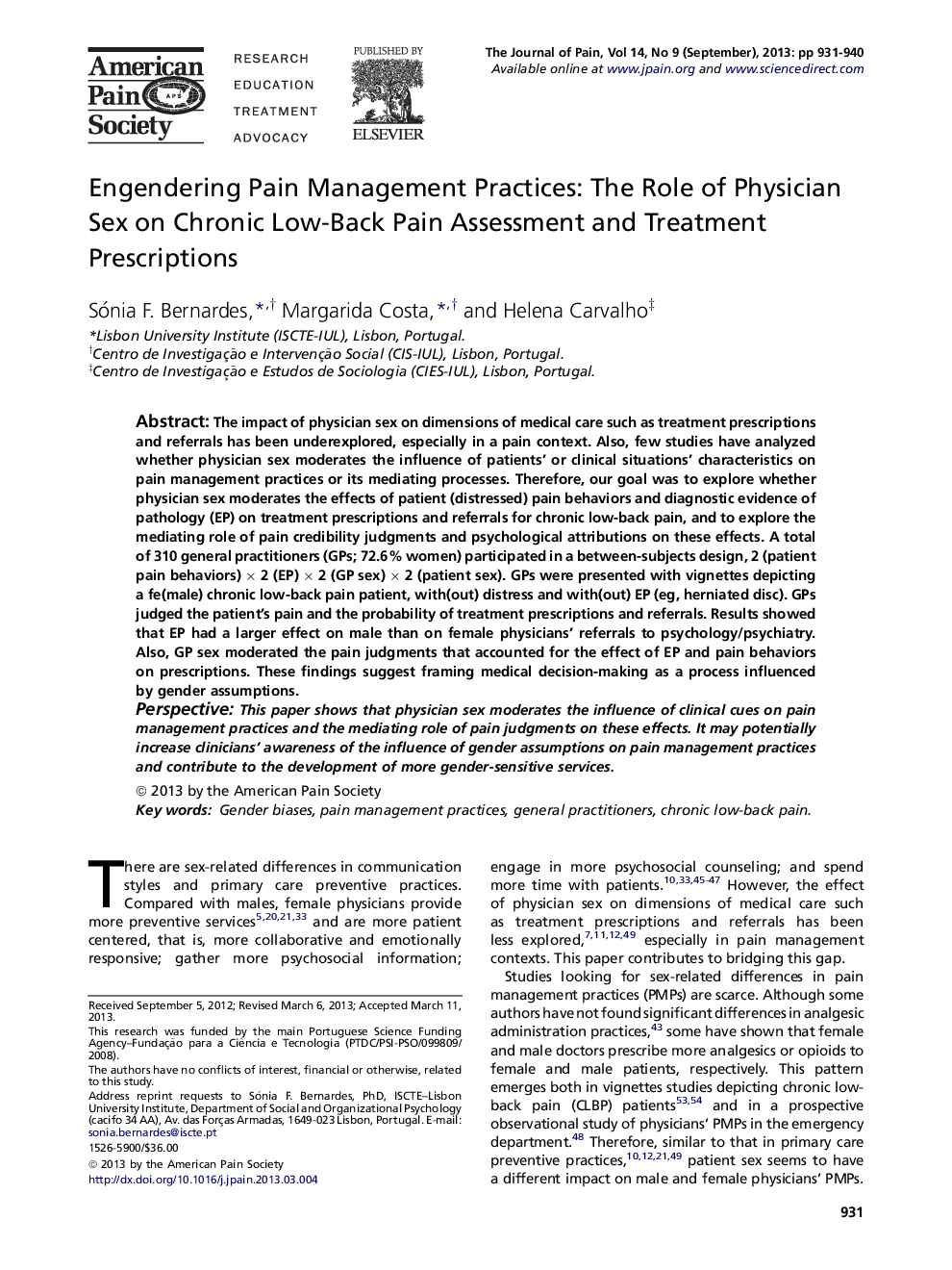| Article ID | Journal | Published Year | Pages | File Type |
|---|---|---|---|---|
| 2728985 | The Journal of Pain | 2013 | 10 Pages |
The impact of physician sex on dimensions of medical care such as treatment prescriptions and referrals has been underexplored, especially in a pain context. Also, few studies have analyzed whether physician sex moderates the influence of patients' or clinical situations' characteristics on pain management practices or its mediating processes. Therefore, our goal was to explore whether physician sex moderates the effects of patient (distressed) pain behaviors and diagnostic evidence of pathology (EP) on treatment prescriptions and referrals for chronic low-back pain, and to explore the mediating role of pain credibility judgments and psychological attributions on these effects. A total of 310 general practitioners (GPs; 72.6% women) participated in a between-subjects design, 2 (patient pain behaviors) × 2 (EP) × 2 (GP sex) × 2 (patient sex). GPs were presented with vignettes depicting a fe(male) chronic low-back pain patient, with(out) distress and with(out) EP (eg, herniated disc). GPs judged the patient's pain and the probability of treatment prescriptions and referrals. Results showed that EP had a larger effect on male than on female physicians' referrals to psychology/psychiatry. Also, GP sex moderated the pain judgments that accounted for the effect of EP and pain behaviors on prescriptions. These findings suggest framing medical decision-making as a process influenced by gender assumptions.PerspectiveThis paper shows that physician sex moderates the influence of clinical cues on pain management practices and the mediating role of pain judgments on these effects. It may potentially increase clinicians' awareness of the influence of gender assumptions on pain management practices and contribute to the development of more gender-sensitive services.
